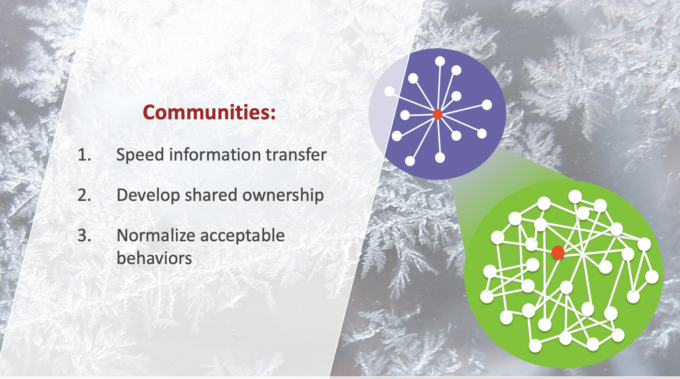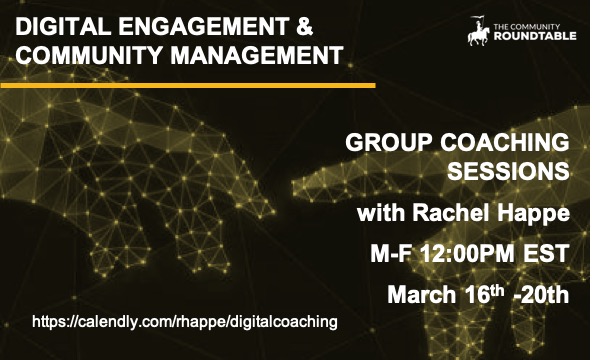Everyone around the globe is scrambling to respond to the COVID-19 crisis. It is moving quickly and it does not discriminate. The shared impact will be determined by the collective behaviors of each individual because it is bigger and faster than most centralized decision-makers can keep up with, although we will need those broad, centralized decisions as well.
The most successful approaches are those that have instituted social distancing and quarantines, whether mandated or volunteered. Everyone is staying home and as they do work, learning and socializing become virtual. The routine of school and work will become critical as people spend more time isolated physically from one another because doing something together is the antidote to anxiety and fear.
Online community managers are in a unique position to support this since their expertise is in creating environments to connect, learn, and collaborate online.
How do communities help in a crisis?
Communities are ideal structures to respond to a crisis when things are moving so quickly that any single decision-maker can quickly become a bottleneck overwhelmed with demands and when everyone’s individual response is critical to the effectiveness of the whole. Single decision-makers can neither communicate out to all their different constituent groups quickly enough nor process all their needs adequately. This creates a frustrating and inefficient dynamic where the capacity of the community waits for direction and loses precious time in responding. This happened in the United States with our federal government’s response and not with Microsoft’s swift decision-making, thanks in part to a willingness to bring experts into the conversation early.
Listen to this expert, Dr. Michael J Ryan from the World Health Organization talk about what is needed in a crisis. His advice?
- “Speed trumps perfection”
- “Community engagement and acceptance is critical”
- “The greatest error is not moving and to be paralyzed by the fear of failure”
These recommendations run completely counter to the transactional, hierarchical, and controlled approach to decision-making and communications that our organizations are steeped in. We want to collect all the facts, make informed decisions, keep people from interfering until we have consulted with our legal, operations, finance, and regulatory groups. We want time to evaluate.
The Value of Online Communities in a Crisis

Communities are distributed social systems that connect people to each other in ways that:
- Increase the speed and transparency of information.
- Share ownership of identifying needs and responses.
- Normalize new behaviors.
Online communities are poised to respond quickly and efficiently to a crisis because of their transparency and scope.
Needs can be quickly assessed and shared from the edges. Ideas, responses, and capacity can also be marshaled at the edges closest to the need.
Because community leaders are facilitators rather than decision-makers, they do not become bottlenecks of information or action. A community leader’s role is to support the safe and constructive functioning of the community – providing spaces for people to gather and collaborate, ensuring the community is protected from fake information and destructive behaviors and ensuring important connections are being made within and across different communities.
By spreading the responsibility and capacity across the network, organizations can quickly align and adapt as the circumstances change IF executives can accept that every response may be imperfect or incomplete. It will give the community a shared sense of purpose and a critical impetus to contribute, which will both help alleviate anxiety and increase capacity.
We are doing this for our community of community professionals, TheCR Network, by adding specific programming to support them as they support their communities.
We opened up more free resources to the public, as leaders across the globe work to engage their communities; including free daily group coaching sessions (limited to 15 people each), free access to our Engagement Resource Bundle, and free webinars – the next one about managing remote teams.
Lastly, members of TheCR Network are working to compile shared documentation and information resources to help their organizations understand how to use communities effectively and why it matters – more on that later.
What support do you need right now? How can we help?


